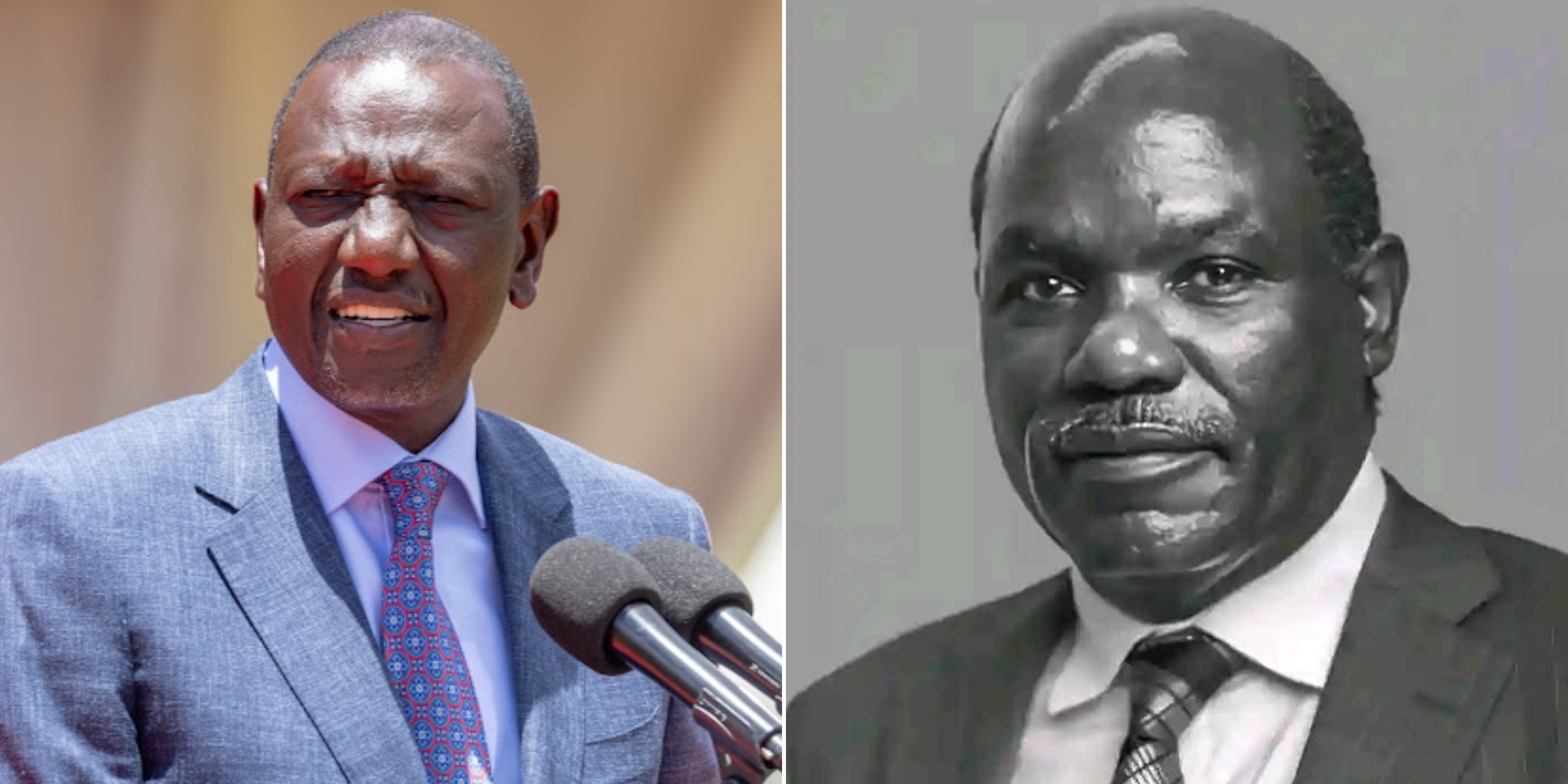KENYA'S President Wiliam Ruto has pledged to facilitate the construction of classrooms of a school within Sabata and name it after former Independent Electoral and Boundaries Commission (IEBC) Wafula Chebukati.
Speaking during Chebukati’s funeral on Saturday, March 8, in response to Kiminini Member of Parliament plea, Ruto pledged to kick start the process of constructing the classrooms within the institution.
“I agree with your representative here that the nearby school will be renamed, and I will help build fifteen classrooms for that school,” Ruto said.
The legislator had also requested the Head to State to help in building more classrooms in the school and rename it after Wafula Chebukati.
“We are a country that forgets our heroes very fast. This man lying here was a great man. And I’ve learned a lot from chairman Chebukati. He had his eye on the ball. He delivered what he had to deliver.
My request is your excellency. we’ve got Sabata Secondary School. In this school we have an issue of scarcity of land and classes. We are requesting you to help us buy land for this school and we call that school Wafula Chebukati, Centre of Excellence.
And put some structure there. If possible, we put even an ICT center,” said Bisai.
The President pledged to construct an ICT center to honor the work Chebukati did as Chairman of the IEBC, where he ensured integrity in the electoral system through ICT.
“Therefore, Mheshimiwa, we will build that school in honor of that respected leader, a patriotic citizen of the Republic of Kenya,” President Ruto added.
Additionally, the head of state revisited the incident that allegedly took place at Bomas before the announcement of the 2022 presidential election results.
President Ruto, claimed that senior security officials approached Wafula Chebukati and pressured him to alter the election results. However, Chebukati remained steadfast, even in the face of threats to his life.
CHEBUKATI'S TENURE.
Former Independent Electoral and Boundaries Commission (IEBC) chairman Wafula Chebukati's tenure at the helm of the electoral body is nothing short of dramatic.
Chebukati’s first major test came in August 2017, when he presided over the general election. Shortly after the results were announced, opposition leader Raila Odinga and the National Super Alliance (NASA) coalition challenged the outcome, claiming massive irregularities. In a landmark decision, Kenya's Supreme Court annulled the presidential results, citing "illegalities and irregularities" in the results transmission.
Chief Justice David Maraga, while reading the judgment, stated: "The Presidential election was not conducted in accordance with the Constitution and the applicable law rendering the results invalid, null and void."
The ruling marked the first time a presidential election had been annulled in Kenya. The court ordered a repeat election within 60 days.
The repeat election in October 2017 was boycotted by Odinga and his coalition, who demanded electoral reforms before participation. The election proceeded with former President Uhuru Kenyatta winning by a landslide, though voter turnout was significantly lower than in August.
Amid the tension leading to the repeat election, former IEBC commissioner Roselyn Akombe resigned and fled to the United States. She claimed that the Commission was "under siege" and not in a position to deliver a credible election.
Three other commissioners, Consolata Maina, Margaret Mwachanya, and Paul Kurgat would later resign, citing internal interference and lack of independence.
Chebukati’s tenure reached its crescendo during the 2022 General Election, a high-stakes contest between Raila Odinga and then-Deputy President William Ruto.
On August 15, 2022, Chebukati declared Ruto the winner with 50.49% of the vote, a razor-thin margin that sparked immediate controversy. The announcement was marred by an unprecedented rebellion within the IEBC itself.
Four commissioners—Juliana Cherera, Francis Wanderi, Irene Masit, and Justus Nyang’aya, collectively dubbed the “Cherera Four”—publicly disowned the results moments before Chebukati’s declaration at the Bomas of Kenya.
Citing a lack of transparency in the tallying process, they accused Chebukati of unilaterally altering figures to favor Ruto.
The dramatic walkout, broadcast live to a stunned nation, deepened public mistrust and fueled protests by Odinga’s supporters.
Chebukati stood his ground, insisting that the results were credible and that he had followed the law.
The Supreme Court later upheld Ruto’s victory in September 2022, dismissing Odinga’s petition and affirming Chebukati’s process, though questions lingered about the IEBC’s internal discord.
The Cherera Four faced legal and disciplinary action, with Cherera and two others resigning under pressure, while Masit was removed following a tribunal probe.
Chebukati’s tenure was a paradox: a period of significant electoral modernization overshadowed by persistent allegations of bias and mismanagement.
Supporters argue that he navigated Kenya through turbulent political waters, ensuring stability in the face of immense pressure.
Critics, however, point to the unresolved tensions of 2017 and 2022 as evidence of systemic flaws he failed to address.
Chebukati’s handling of the 2022 election earned him both praise and criticism. President Ruto lauded him for his firm leadership, stating: "Chebukati is a hero. He stood against blackmail, threats, and intimidation to deliver a free and fair election."
Chebukati, was Diagnosed with Cancer in April 2023, just months after vacating office. He had undergone various surgeries in Germany to treat the condition.
Despite showing improvement at first, the cancer came back again, requiring more medical interventions before his final hospitalisation in February 2025.
Chebukati’s death marks the end of an era for Kenya’s electoral politics. As the nation prepares for future elections, his contributions—and the controversies that defined his time at the IEBC—will remain a subject of debate.







